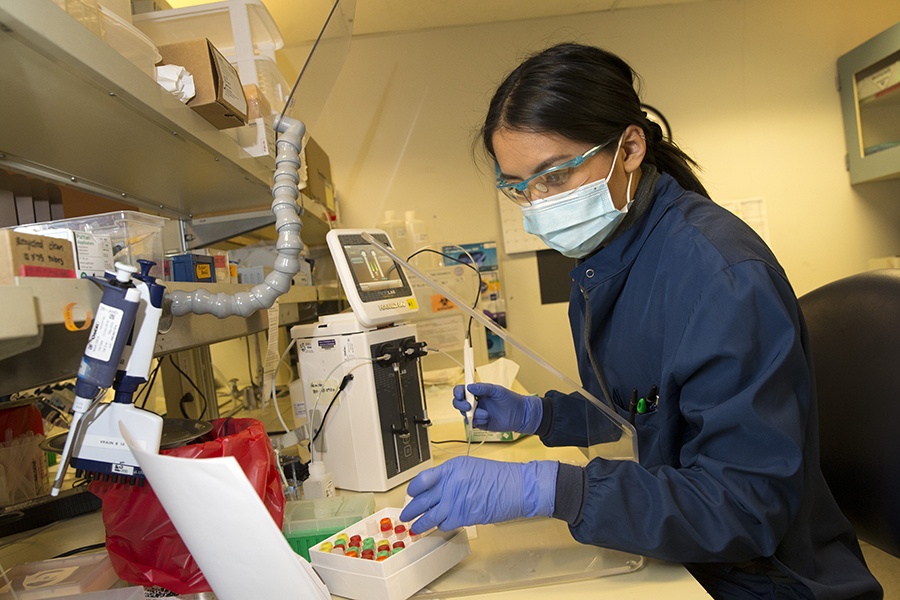A UMass Memorial COVID Patient Has “Dramatically Improved” After Receiving Hospital’s First Plasma Transfusion
The patient is now being weaned off a ventilator.

Medical laboratory scientist, Alicia Bui, runs a clinical test in the Immunology lab at UW Medicine looking for antibodies against SARS-CoV-2, a virus strain that causes coronavirus disease (COVID-19) on April 17, 2020 in Seattle, Washington. The plasma she is examining came from donors who have recovered from COVID-19, a contagious respiratory illness, and may have the potential to help combat the disease in others. (Photo by Karen Ducey/Getty Images)
Worcester’s UMass Memorial Medical Center has shared some good news: A critically ill COVID-19 patient saw impressive improvement after receiving the hospital’s first plasma transfusion.
Per a statement from the hospital cited in the Boston Globe on Tuesday, the patient, who was on a ventilator, “dramatically improved” after just hours of transfusion. Before the treatment, the patient needed the ventilator on its maximum settings, and after the transfusion, the patient actually began to be weaned off the device, the statement said.
The transfusion comes one week after UMass Memorial began seeking potential donors in Central Massachusetts for its COVID-19 plasma registry. According to the registry’s website, people who have fully recovered from COVID-19 have antibodies in their plasma that can attack the virus. The hospital is considering plasma treatment for patients with serious or life-threatening cases of the disease, or those whom doctors have determined to be at high risk of progression to severe cases.
Convalescent plasma therapy was first widely used as a treatment during the 1918 Spanish flu epidemic. Per a National Institute of Health study, scientists at the time reported that the process led to a significant drop in the fatality rate among the seriously ill. Doctors have since transfused plasma into sick with measles, polio, chickenpox, SARS, and Ebola patients, receiving mixed results.
While the treatment is gaining steam across the country—with success stories coming out of other states, like New Jersey and California—experts warn that clinical trials are still needed to determine whether these patients’ recovery was a direct result of the plasma, and if there are other approaches that might be better.
“The reports thus far are promising, yet lack control arms and adequate numbers to celebrate,” Dr. Kent Sepkowitz, a New York City infectious disease specialist, wrote in a CNN op-ed.
However, given the lack of effective treatments for COVID, healthcare workers, scientists, and the government have quickly mobilized to collect plasma in order to conduct trials and learn more. If you have recovered from COVID and are considering donating (like the Celtics’ Marcus Smart did), visit the UMass Memorial and American Red Cross websites to check if you are eligible.


